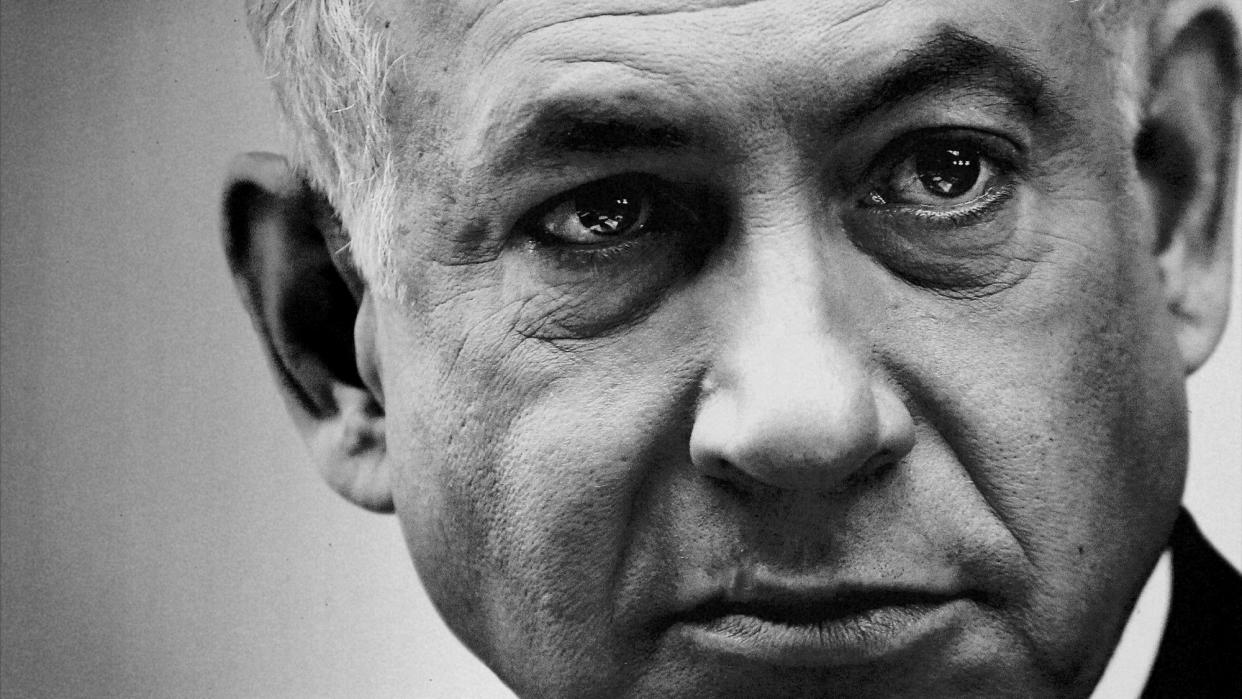Israel-Gaza: will embattled Netanyahu stay the course?

- Oops!Something went wrong.Please try again later.
As Israel's war against Hamas intensifies, Benjamin Netanyahu is waging a separate battle for his political survival.
Growing public opposition to his handling of the Gaza operation, combined with anger over the security lapses around the 7 October attack that triggered the war, have helped to make Netanyahu the "most hated man in Israel", said Graeme Wood in The Atlantic.
But while the under-pressure prime minister will "have his political reckoning", betting against him is "like betting against the house", Wood added. Netanyahu may prove "too shameless to step down, and too entrenched to be forced into retirement".
What the papers said
In all his cumulative 16 years as prime minister, the longest-serving leader in Israel's history has "never wielded more power" than he does today, said The Telegraph's foreign correspondent Sophia Yan. Netanyahu will decide "how hard Israel pushes the next phase of its war into Gaza" and when to end the operation. And he will decide what "the day after" the war will look like.
Yet Netanyahu’s position "appears increasingly tenuous", said Al Jazeera. Despite his reputation as a security hawk, many Israelis hold him and his cabinet directly responsible for the failures of 7 October, and he has come "under heavy domestic criticism" for his handling of the Gaza conflict.
Even before the war broke out, Netanyahu had long been "bogged down" by corruption charges, the site added, and by leading a fractious far-right coalition whose plans to change the judicial system drew some of the biggest protests in Israel's history.
All the same, said Ben Lynfield in Foreign Policy, with every day that passes, Netanyahu "seems to be a little more determined – and possibly better positioned – to remain in power well after the war is over".
According to Lynfield, a former Arab affairs correspondent at The Jerusalem Post, the PM's strategy "seems to be threefold: to deflect blame for the security lapses that allowed the Hamas attack, keep his governing coalition intact at any cost, and bide his time until he can point to concrete achievements".
This strategy has been blasted by opposition leader Yair Lapid, after Netanyahu reportedly claimed during a closed-door meeting in the Knesset yesterday that the Oslo Accords agreed in the 1990s caused as many deaths as Hamas's 7 October attacks, "though over a longer period".
Lapid wrote on social media that it was "impossible to understand the level of disconnect and cynicism of the prime minister, who is conducting a wicked political campaign during wartime whose entire purpose is to absolve himself of responsibility, to accuse others, and to create hatred".
What next?
In the short term, said Lynfield in Foreign Policy, Netanyahu seems to be benefitting from the axiom that "you don't topple a leader while fighting is under way".
And despite criticism of his handling of the conflict, support for the war appears to be widespread within Israel. The latest Israeli Voice Index, produced by the Israel Democracy Institute think tank, showed 87% of Jewish Israelis backing the resumption of the offensive in Gaza following the recent seven-day ceasefire.
The war also "further delays his three-and-a-half-year-old corruption trial", said Reuters, "and puts off an expected state inquiry into why Israel under his leadership was caught off guard".
Yet as Israeli forces march deeper into southern Gaza, Netanyahu faces a decision that "may have huge political ramifications for his career", said Al Jazeera – whether to send Israeli troops into the 310-mile tunnel network used by Hamas below the coastal territory.
The PM has committed to completely destroying Hamas and may send troops into the tunnels to save his political career, despite the risk to hostages and Israeli soldiers, predicted Nader Hashemi, associate professor of Middle East and Islamic politics at Georgetown University.
Netanyahu knows that unless he can "eradicate Hamas" and "claim an ultimate victory", Hashemi told the site, "he doesn't have a chance to continue in Israeli politics".

